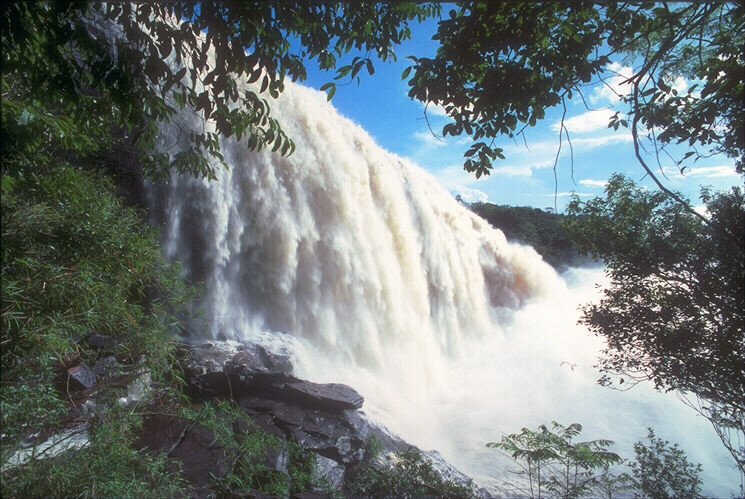Part 1: Water Purification

Goals
- Understand the importance of clean water.
- Understand and apply measurements and conversions
- Be able to make own purified water.
Resources
Spangler, Joyce T.Ý ed. Focus On Earth Science Laboratory
Manual.Ý Merril Publishing Co.: Columbia, 1985.
Pulsen, Gary. Voyage of the Frog .
Materials
|
medium size bowl
|
water
|
|
2 coat hangers (or bendable wire)
|
pen (felt tip)
|
|
pan (larger than circumference of the bag)
|
plastic bag (clear)Ý
|
|
sun lamp or bright sunshine
|
sand or soil
|
Time
1.5 Hours
Procedure
- Discuss the importance of clean water (drinking and cooking)
and how water is necessary for survival on the sea and
at home. Review Chapter 9 of Voyage of the Frog where David
explains his water supply and how he forces
himself to ration water each day.
--What if David did not have clean water to drink?
--What would you do?
- Problem Solving: How much water can he drink in one month if
he has 20 gallons? 10 gallons?
1 gallon = 4 quarts
1 quart = 2 pints
1 cup = 8 ounces
1 gallon = 4 quarts = 8 pints = 16 cups = 128 ounces
- Explain that water can be purified through a distillation
process; and that this process may be used in
emergency situations. (lab)
- a. Bend the coat hanger into a frame.
b. Mix the sand or soil with the water in the bowl. Mark the water
level on the inside with the pen.
c. Place the bowl in the pan and place the wire frame over it.
d. Pull the plastic bag over the frame until it touches the pan.
Record the appearance of the water.
e. Set the apparatus to stand undisturbed. Observe and record your
observations after about ten minutes and
again after 30 minutes in the Table provided.
f. Allow the apparatus to stand undisturbed. Observe and record
your observations after about ten minutes
and then again after 30 minutes in the table.
Assessment
- Students will turn in a summary of their results of the lab.
- Students will do the problem solving activity. Criteria for
success: correct procedure and answer.
See Rubrics
for Water Purification
Major Concepts
- Science - Experiment of water purification
- Social studies - Survival skills, applying the use of
scientific knowledge
- Math -Use of measurement, problem solving
Go To Part 2: Winds
Go Back To S.O.S. Understanding the Weather
Conditions on the Seas Page
Submitted By St. Norbert College
Ocean Voyagers Program

